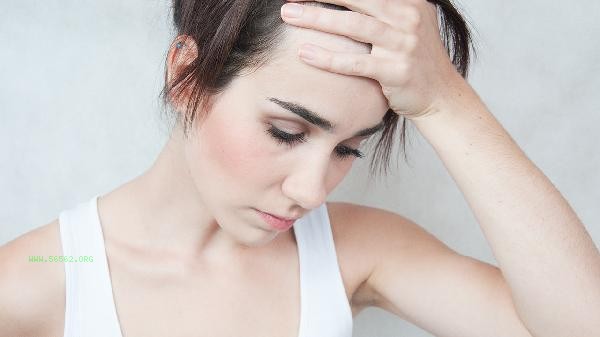Menopausal women can consume soy products, deep-sea fish, whole grains, dark vegetables, and dairy products in moderation. If necessary, they can also follow medical advice to take medications such as Guweisu tablets, Kuntai capsules, estradiol valerate tablets, Tibolon tablets, and calcium carbonate D3 tablets. Menopausal women are prone to symptoms such as hot flashes, insomnia, and osteoporosis due to changes in hormone levels, and require comprehensive dietary and medication adjustments.

1. Food
1. Soybean products
Soybean products, such as tofu and soybean milk, contain soybean isoflavones, whose structure is similar to estrogen, which helps relieve symptoms such as hot flashes and sweating during menopause. Soy isoflavones can also help regulate blood lipids and reduce the risk of cardiovascular disease. It is recommended to consume 30-50 grams of soybeans or equivalent soy products daily, but gout patients need to control their intake.
2. Deep sea fish
Salmon, sardine and other deep sea fish are rich in omega 3 fatty acids, which can reduce the inflammatory response in menopause, improve mood fluctuations and cognitive function. Omega-3 fatty acids can also help maintain cardiovascular health. It is recommended to consume 2-3 times a week, about 100 grams each time, and steaming is the main cooking method.
3. Whole Grains
Whole grains such as oats and brown rice are rich in B vitamins and dietary fiber, which can help stabilize blood sugar and improve menopausal constipation. B vitamins can also help alleviate fatigue and anxiety. It is recommended to replace some refined staple foods with whole grains, with a daily intake controlled at 150-200 grams.
4. Dark vegetables
Spinach, broccoli and other dark vegetables are rich in vitamin K and calcium, which can help prevent menopausal osteoporosis. These vegetables are also rich in antioxidants, which can reduce the damage of free radicals to cells. Daily intake of 300-500 grams of vegetables should be ensured, with dark vegetables accounting for more than half.
5. Dairy Products
Dairy products such as milk and yogurt are high-quality sources of calcium that can help maintain bone density in menopausal women. Tryptophan in dairy products also helps improve sleep quality. It is recommended to consume around 300 milliliters of low-fat dairy products daily. Lactose intolerant individuals can choose lactose free products or fermented dairy products.

2. Medication
1. Guweisu Tablets
Guweisu tablets can be used to regulate autonomic nervous system dysfunction, improve symptoms such as menopausal palpitations and insomnia. Its main component is zeaxanthin, which has nutritional and neurological effects. Mild gastrointestinal reactions may occur during use, and individuals with abnormal liver function should use with caution.
2. Kuntai capsule
Kuntai capsule is a traditional Chinese patent medicines and simple preparations, which has the effect of nourishing yin and clearing heat, and is suitable for climacteric hot flashes, night sweats, irritability and other symptoms. This medicine contains ingredients such as Rehmannia glutinosa and Coptis chinensis. Patients with spleen and stomach deficiency and cold should use it under the guidance of a physician.
3. Estradiol valerate tablets
Estradiol valerate tablets are estrogen supplements that can effectively improve symptoms caused by menopausal estrogen deficiency. Before use, it is necessary to comprehensively assess the risks of thrombosis and breast cancer, and strictly follow the doctor's advice to control the dosage and cycle of medication.
4. Tibolon Tablets
Tibolon tablets have estrogenic, progestogenic, and weak androgenic activities and are suitable for the treatment of menopausal syndrome. This medication may cause vaginal bleeding and other reactions, and regular monitoring of the endometrium is necessary during the medication period.
5. Calcium Carbonate D3 Tablets
Calcium carbonate D3 tablets can supplement the calcium and vitamin D that menopausal women are prone to lack, and prevent osteoporosis. When taking it, attention should be paid to taking it with meals in divided doses to improve absorption rate. Patients with kidney stones should consult

before use. Menopausal women should not only pay attention to diet and medication regulation, but also maintain regular exercise such as brisk walking, yoga, etc., with at least 150 minutes of moderate intensity exercise per week. Ensure adequate sleep, avoid staying up late and overworking. Engage in appropriate stress relieving activities such as mindfulness meditation and maintain an optimistic mindset. Regularly conduct bone density, breast, and gynecological examinations to promptly detect and address health issues. Establishing a healthy lifestyle helps to smoothly navigate through menopause.




Comments (0)
Leave a Comment
No comments yet
Be the first to share your thoughts!